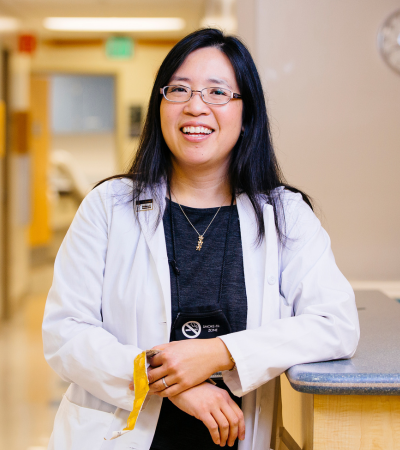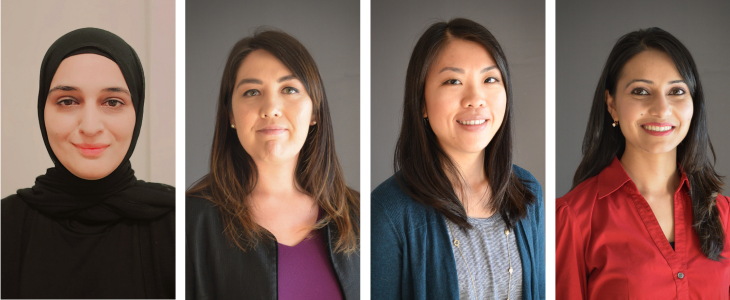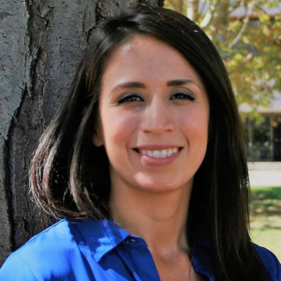CA Quits works to advance tobacco treatment for the Medi-Cal population

May 1, 2024
Since 2018, the CA Quits statewide project funded by the California Department of Public Health’s California Tobacco Prevention Program (CTPP) has focused on the implementation of tobacco treatment best practices with health systems and health plans serving California’s low-income population with Medi-Cal, which covers 1 in 3 Californians. The project is housed at the UC Davis Center for Healthcare Policy and Research (CHPR).
“Tobacco use is the leading cause of preventable death and is still pervasive among our most vulnerable communities, and people with Medi-Cal have a higher tobacco use rate than the general population,” said Elisa Tong, an internist at UC Davis Health who heads the CA Quits project.

Tong said that while California has made great progress in reducing the use of commercial tobacco products over the years, the state is facing new challenges with new products and health issues. According to CTPP’s 2022 California Tobacco Facts and Figures, California still has 3.2 million adult tobacco users, 1.2 million of whom now vape and others using emerging tobacco industry products, increasing the need for health systems and plans to learn about and promote tobacco and nicotine cessation treatment.
“To improve tobacco treatment at a systems level, our work is centered around quality and health equity with a focus on population health strategies that will save lives by ending tobacco use,” said Cindy Valencia, director of CA Quits. “Our research has shown that Latinos in Medi-Cal who use tobacco are advised less by providers, in part due to fewer clinic visits, so we need to engage patients more outside of the clinic.”
For shared learning on best practices, CA Quits hosts a learning collaborative for public hospital clinics under the Department of Health Care Services (DHCS) Quality Incentive Pool Program, a value-based payment program to hold health systems accountable to improve quality and access to care.
Additionally, CA Quits hosts a workgroup with the Medi-Cal managed care plans to engage in population health outreach strategies and improve access and health equity for tobacco treatment services in alignment with DHCS’s California Advancing and Innovating Medi-Cal (CalAIM) initiatives.
To improve tobacco treatment at a systems level, our work is centered around quality and health equity with a focus on population health strategies that will save lives by ending tobacco use.—Cindy Valencia, director of CA Quits at the Center for Healthcare Policy and Research
CA Quits has conducted several trainings for health systems across the state and helped them improve their workflows and connect their electronic medical record systems to Kick It California, the state tobacco quitline to submit electronic referrals. CA Quits has also been collaborating with several Medi-Cal managed care plans, in partnership with Kick It California, to conduct proactive outreach to members who use tobacco and offer treatment services.
Last year, CA Quits published a policy brief reviewing the project’s first five years. The brief describes how over 100 health systems, Medi-Cal managed care plans and public health partners have teamed up to improve tobacco treatment in California. CA Quits has also been a strong advocate for Medi-Cal to prioritize tobacco as a quality measure and align with the changes in the national tobacco quality metric to assess for vape use and screen for a lower age with children 12 years and older.
The CHPR team working on CA Quits includes Tong (Principal Investigator), Valencia (Project Director), Moreen Sharma (Quality Improvement Specialist), Rebecca Hsieh (Communication and Education Coordinator), Shannon Haggitt (Plan and Partner Manager), and Tasleem Chechi (Quality Data Analyst).

The Center for Healthcare Policy and Research’s mission is to facilitate research, promote education, and inform policy about health and health care. The goal is to improve the health of the public by contributing new knowledge about access, delivery, cost, quality and outcomes related to health care and providing rigorous evidence to policymakers and other stakeholders. CHPR executes its mission through interdisciplinary and collaborative research; education and career development; and research synthesis and dissemination.

